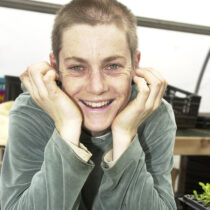The Sound of Drought
Ground Level
- Publication: East Hampton Press
- Published on: Oct 29, 2024
- Columnist: Marilee Foster
I kept waiting for rain, but the earth was getting drier. I’d keep the late summer cover crop intact until conditions improved, until the wind came out of the east...

 More Posts from Marilee Foster
More Posts from Marilee Foster